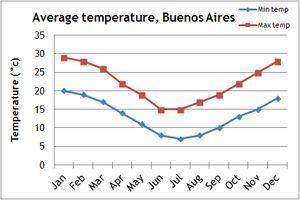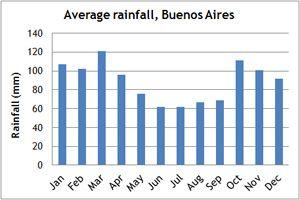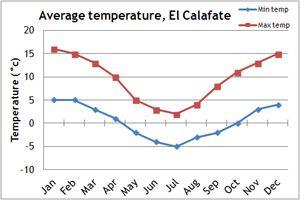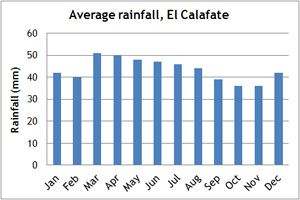Our grading system explained
Argentine Patagonia

Sculpted by the elemental forces of nature, Patagonia is a region of breathtaking, rugged beauty that provides numerous opportunities for walkers, trekkers and outdoor enthusiasts.
3 Holidays
- Enjoy a tour of the vibrant Latin city of Santiago
- Trek the spectacular W Route of the Torres Del Paine – Patagonia’s most famous hiking route.
- See the iconic Torres del Paine from the Las Torres Viewpoint
- Stay in the stunningly located Eco Camp
- Experience the remarkable sights and sounds of the spectacular Perito Moreno Glacier
- Explore the landscapes and wildlife of wild and windswept Tierra Del Fuego – the very southern tip of South America
- Take a boat trip on the Beagle Channel to view the last lighthouse sailors see before reaching Antarctica
Flight inclusive from £7665, Land only from £6375
- Walk to the base camps of both Mount Fitzroy and Cerro Torre – the two iconic peaks of Los Glaciares National Park
- Discover the real Patagonian wilderness at magical Estancia Cristina, a truly remote and historic landmark
- Immerse yourself in the natural beauty of Los Glaciares at the Patagonia Eco Domes
- Experience the remarkable sights and sounds of the spectacular Perito Moreno Glacier
Flight inclusive from £8275, Land only from £7075
- Enjoy seven days of excellent walking, taking in all the highlights of the spectacular Torres del Paine and Los Glaciares National Parks
- Visit the breathtaking Perito Moreno Glacier
- Stay in high quality accommodation throughout including the award winning Ecocamp in the Torres del Paine
- Discover Santiago with a city tour and a full day walk in the Andes to San Francisco Glacier
Flight inclusive from £7250, Land only from £6100
- 1
Introduction
Patagonia is a vast geographical region covering over a million square kilometres. It encompasses the southern tip of South America, spanning both Chile and Argentina. The Colorado River marks the northern boundary of Patagonia whilst Cape Horn, part of the Tierra del Fuego archipelago, is the southernmost point.
The varied landscapes of the region are never more dramatic then those found within the neighbouring parks of the Torres del Paine in Chile and Los Glaciares National Park in Argentina. Here, the Patagonian Andean mountains are formed mainly from granite and have been carved by over 12 million years of glacial action into turquoise lakes, tumbling glaciers and spectacular jagged rock towers such as the iconic peaks of Cerro Torre and Fitzroy or the magnificent Perito Moreno Glacier - one of the natural wonders of the world. Both parks offer excellent bases for seeing the many wonders of Patagonia, on our Gentle Walking Patagonia in Style walking holiday, for they combine stunning scenery and plentiful wildlife with many miles of good walking paths and opportunities for other outdoor activities.
Alongside its natural splendours Argentine Patagonia has a fascinating history drawn from the tales of the remarkable first settlers, explorers and mountaineers. And it is the wild, remote and dramatic landscapes, that so challenged these early adventurers, that still appeal today. Argentine Patagonia is also the gateway to the amazing scenery and wildlife of Antarctica, sailing from Ushuaia, through the Beagle Channel into the great Southern Ocean.
You can also discover the stunning landscapes and historic interest of both Argentine and Chilean Patagonia on our Complete Patagonia - Paine & Fitzroy walking holiday, or sail from the southernmost city in the world, Ushuaia, and experience the majesty of the Great White Continent. We offer three superb Antarctic cruises: Quest for the Antarctic Circle, Spirit of Shackleton and Antarctica Classic.
Related news and articles
Key Facts
- Size of region: 670,000 km2
- Currency: Argentine Peso
- Power supply: 220-240 Volts
- Sockets: Two flat-pin or three flat-pin plugs (Argentina). Two round pin (Chile)
- Language: Spanish
- Time difference: GMT -3 hours (Argentina)
- Visas: British nationals may visit Argentina as a tourist with a valid passport without a visa for a maximum stay of 90 days.
- Popular dishes: Asado (barbequed beef or lamb) and empanados (small pasties)
- Popular drinks: In Argentina, maté, a strong bitter tea, is drunk in copious amounts from a bombilla, a cup made of a hollowed gourd with a silver straw. Both Argentina and Chile are renowned for the quality of their red wines.
- Did you know: The explorer Magellan named the region after the native people there. He used the word Patagón, or giant, to describe the group, who were an average height of about 6 feet tall, much taller than the Europeans of the time.
- FCO advice: FCO travel advice
Climate
When is the best time to travel to Argentine Patagonia?




Patagonia's seasons are the reverse of the UK, with summer during the months of December to February. Temperatures are in the mid teens to twenties. This is thought to be the optimum time to travel to Patagonia, but this is also when the wind tends to be strongest. This is also the busiest time of year for tourists in Patagonia so do book ahead if you want to travel during these months as hotels and flights fill up quickly. Travel in spring and autumn and although temperatures will be lower, the wind also tends to be reduced. Our climate charts will give you a guide as to the weather conditions of Argentine Patagonia.
Spring (September-November) and autumn (March to May) are thought to be the best time to visit the capital of Argentina, Buenos Aires.
If you can't make the dates of our group departures, then take a private departure on dates to suit you, or we can create a Tailor Made holiday to Patagonia, especially for you and your family or friends.







